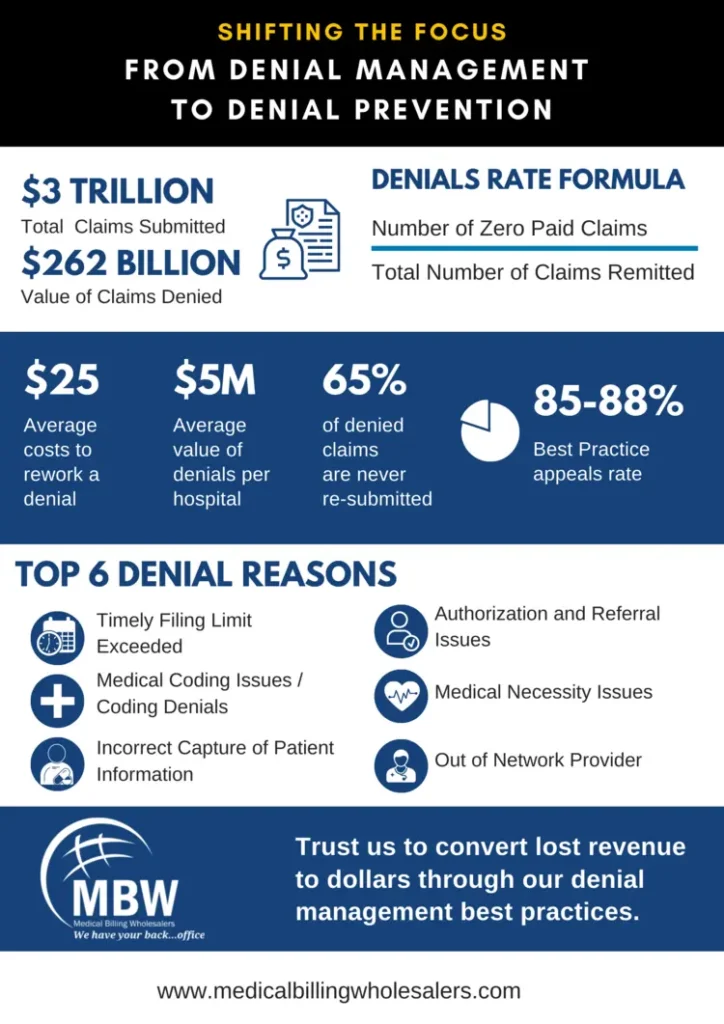An overwhelming amount of time, money, and resources are spent by healthcare organizations to appeal denials. To understand the magnitude, look at these staggering numbers:
Of a total of $3 Trillion in healthcare claims, $262 Billion are denied.
With the amount of time addressing these denials takes, as many as 65% of these denied are never resubmitted
Denied claims can make a significant dent on an organization’s financial viability, and ineffective AR management is the #1 reason for the closure of a healthcare organization.
As revenue cycle administrators are caught in this vicious phase of managing denials, the resources that a denial prevention program seems like an additional burden on them. Contrary to this perception, denial prevention programs give you long-term and sustainable results and help you identify the root cause in each of the revenue cycle processes – Scheduling, patient registration, data capture quality, clinical documentation and coding, claims filing, and accounts receivable management.

FAQs Denial Managment Inphographic
- What is denial management in medical billing?
It is the process of identifying, analyzing, and appealing denied claims. The goal is to recover lost revenue quickly. - Why do medical claims get denied?
Common reasons include coding errors, eligibility issues, or lack of authorization. Payer rules also change often. - How can denials be reduced in medical billing?
Regular audits, staff training, and pre-claim reviews help. Clean claims increase payment success. - What is the difference between hard and soft denials?
Hard denials can’t be fixed and result in lost revenue. Soft denials are fixable and can be appealed. - How fast should denied claims be appealed?
Appeals should be filed within 7–14 days. Delays can lead to permanent revenue loss.
